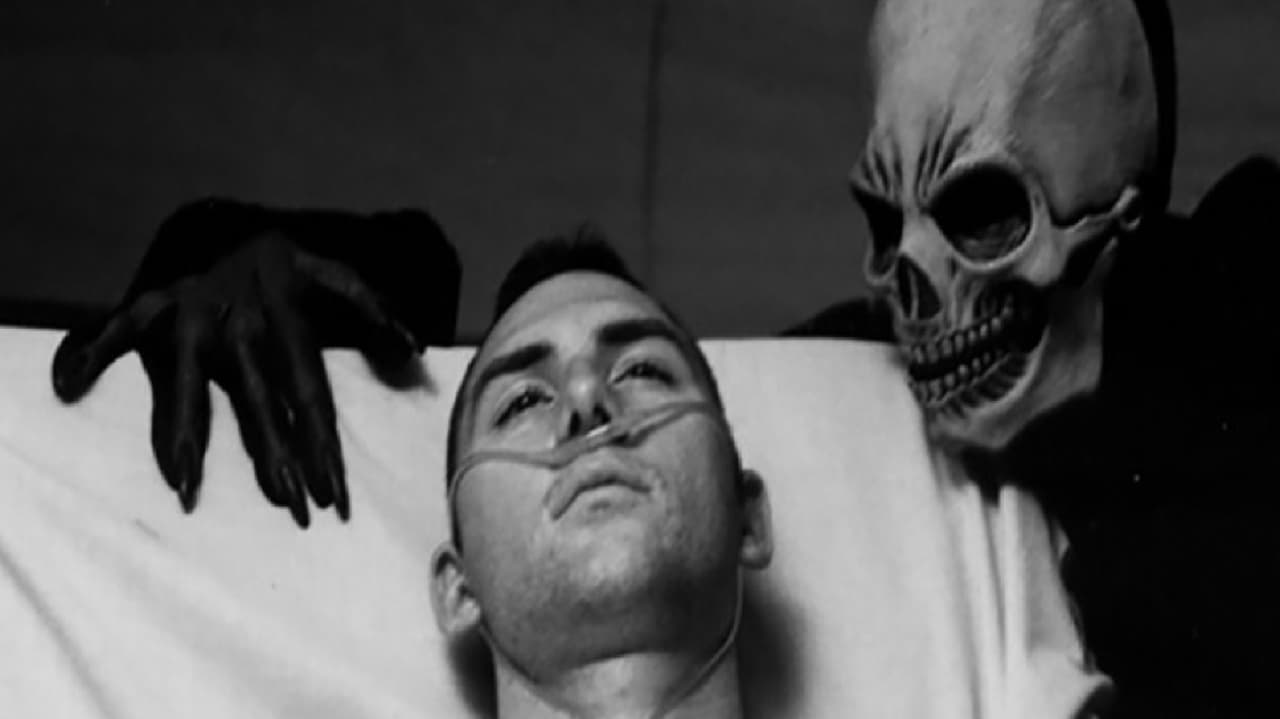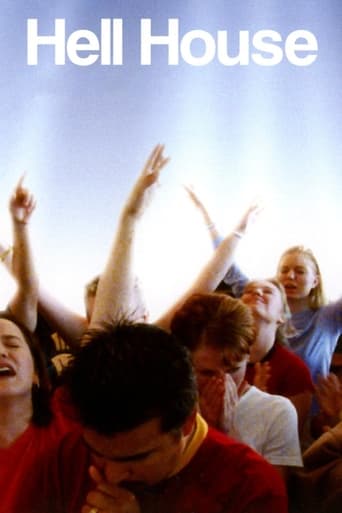Steve Pulaski
As a young child, I absolutely detested haunted houses after my mother and I found ourselves lost in one while vacationing at a campground. I remember the smells of plywood, the blinding, gray mist of smoke machines, and smell of burning rubber and cheap makeup from costumes, combined with the general fear of being lost and at the mercy of others, and being completely absorbed in fear. Some would say, on that basis alone, the haunted house succeeded, but on my basis, living through the experience, I'll kindly spend my Halloween season in the comfort of my own home for the subsequent years.My haunted house experience is nothing like those who find themselves attending one of the "Hell Houses" put on by the Cedar Hill Trinity Church in Cedar Hill, Texas every year. For ten years, the church has created their own haunted house billed as "Hell House," a haunted house housing graphic depictions of traumatic events such as incest, date rapes, homosexuality, failed abortions, and more, all of which claiming to stem from the rejection or absence of God in the characters' lives. The goal of these Hell Houses is to summon fear in one significant enough for them to turn their life over to Jesus Christ to allegedly get on the path of righteousness.Hell House was one of the first documentaries to show this kind of radical, Christian fundamentalism, and although it was met with rave reviews, fell into obscurity relatively quickly. It wasn't until 2006 that Jesus Camp, another documentary exposing the indoctrination of Christianity into the youth, premiered in theaters, summoning even more positive reviews and an Oscar nomination, did light of these methods actually become etched into the mainstream.While Hell House's presentation as a documentary might be significantly less glamorous than that of Jesus Camp's, with an aesthetic much more burdened by graininess and an editing style that is amateur even by low-budget documentary standards, the effect still doesn't feel diminished or lessened. The depiction of these sins is frightening, and the fact that they are captured in great detail make them all the most emotionally traumatizing; I cannot imagine the thoughts and conceptions that would've raced through my mind at age four or five, had I seen a woman with a bloodied crotch, screaming and begging for her life on a hospital bed.Such emotional confusion, however, is intentional on part of the church to summon the aforementioned fear that would optimistically lead the young children to become followers of God at an early age, leading the church to feel a sense of accomplishment and a greater sense of unity amongst their neighborhood. Despite the moral and ethical implications of such fearmongering, director George Ratliff presents Hell Houses in a nicely even-handed manner, one that covers a great deal of ground in less than ninety minutes. We see the community of Cedar Hill try out for roles such as the abused daughter of an incestuous relationship or the victim of a date rape and see the ongoing construction of the haunted house. One woman who auditions for the role of a raped teenage girl talks about how seeing her real-life rapist in the audience for her performance summoned her to give the most heartfelt and emotionally affecting performance of her entire life. Judge the church and its actions but there's no doubt at all that an immense amount of effort goes into the perfection of one night.Like many Christian films, especially documentaries, one of the most contemptible aspects is the Christians' assumptions of secular individuals, with many souls immediately blasting them as godless heathens that are incapable of making moral, just choices because they aren't governed or "kept in line" by a higher power. The church's Hell House works to depict this by making all of its victims decidedly secular, eventually expressing regret at their ignorance or blatant denunciation of God when they're lying on their deathbeds or in certain predicaments. Such depictions contradict the church's persistent replication of the realism of these situations in terms of how far they go in order to try and have the conversion effect they're ultimately seeking.Ratliff's Hell House is a strong documentary in that it sheds light on a subsector of the American population I'm not sure many know exist. Since Cedar Hill's success and popularity (mostly due to a reenactment of the Columbine killings during one of their Hell Houses), many churches across the country have worked to construct their own Hell Houses in an attempt to scare, convert, and inform. The documentary, however, through all its graininess and choppy aesthetic, profiles one of the most perplexing things in contemporary religion I have yet to see and does so in a pleasantly even-handed fashion.Directed by: George Ratliff.
cotysmith08
Yes, it was very accurate. I grew up in the church and this film is exactly how I remember my church years. I'm sure many are shocked and horrified at the actions and train of thought of the church, but I've been around it so long that I wasn't shocked at all by it. I think the reason why I didn't enjoy the movie is because it brought back a bunch of bad memories for me,but if I had never set a foot in a church before it likely would have fascinated me. With that said I was most intrigued by the fact that it seemed like these people were acting out their own fantasies. The guy whose wife left him was obviously writing out a fantasy in the scene he wrote where a woman is caught cheating and is then murdered was very disturbing because you could see some sort of sick wheels turning inside of his head while he watched the scene. overall, if you've never been to a church you'll enjoy it but if you've spent time in a church you'll likely just see it as the same old same old.
julia-263
I was actually a volunteer for the haunted house version of Hell House and it is so sad to see so many people miss the real point of the movie. Actually, I can see in all of these comments that people don't WANT to see the point. The point is not to condemn a gay person to hell, or to say that a girl that gets raped is going to hell. The point is to say that if we don't turn to Jesus, we are ALL going to hell. Sorry if that word stings the conscience, but I can only assume that the amazingly bitter backlash for this movie shows peoples defensiveness about the subject, and lack of understanding of what the TRUE message of the bible is. Before another person makes a single comment about this being the work of Christian whack jobs, I would like you to refute ANY of the things in Hell House using the bible. Each of the things described are enough to send any of us to hell if we don't repent, or so the Bible says. If you're a Christian, you believe in the Bible, all of it. So don't say that this is Christian nut jobs. This applies to ALL Christians, this is our message, that Jesus loves you enough to save you from yourself.....to save you from Hell. I think the problem here is, that those who bitterly oppose it don't want to have to make that choice. The way is narrow people...and before you jump all over that statement....it's in the bible too.
PaulLondon
Hell House is an interesting documentary looking at a church's annual performance that demonstrates to people how easy it is to be flung into the screaming maw of Hell. The filmmakers are careful not to be too judgemental of this bizarre phenomena but in doing so miss the chance to look at the moral complexity that the story really offers.The church's Hell House appears to condemn people who are victims of others - in one section a girl, who we discover was abused by her father, has drugs plied upon her, is raped and then in despair commits suicide - for which she is condemned to Hell. Another vignette features a young man, abused as a child by his uncle (is there a theme here?), dying from AIDS - naturally he gets dispatched to Hell too. The church don't actually bother condemning the abusers as much as they do their victims. Presumably the abusers repent and the pearly gates open wide for them whilst their victims languish in a hell of red lights, dry ice and perspex ceilings.The film is fascinating and yet leaves the feeling that it could have been so much more. It also opens for debate the true morality and humanity of the people who organise this ghoulish performance.

